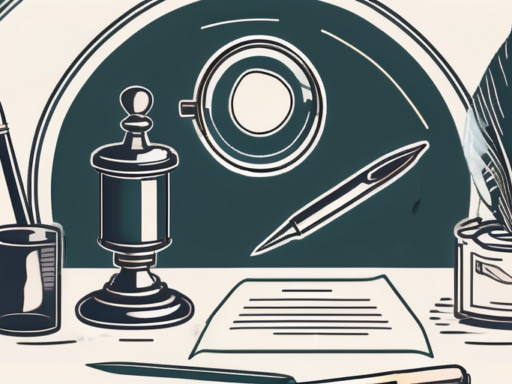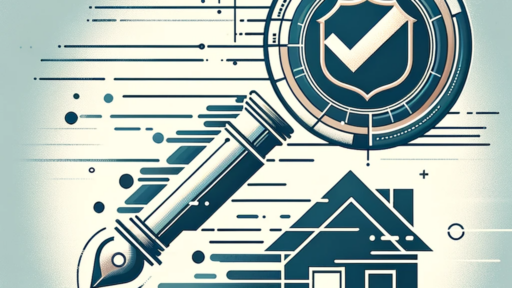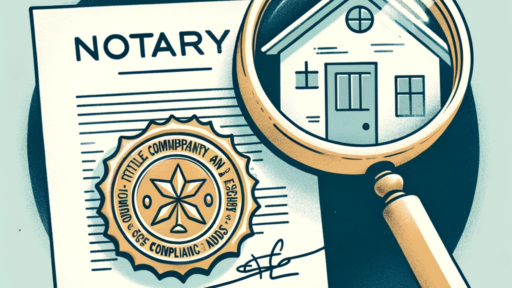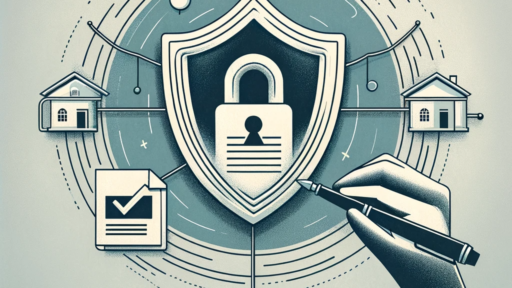Ever been stuck in a situation where you had to validate a document that already had signatures? Not to worry, as here we’ll discuss the procedure involved in notarizing pre-signed documents and allay any doubts along the way. So get a pen that you love the most, and let’s embark on the exciting journey of notarization to learn more about it!
Understanding Notarization of Signed Documents
First things first, without knowing what notarization is in general, we can’t even start talking about notarizing documents that are already signed. In the very beginning, notarization is the process of legal documents where only those documents that have signatures get the authentication. This validation is performed by a specific legal representative called a notary public.
Authorization is a major contributor to the straightness and legality of so many legal transactions. It provides an added layer of safety and reliability, for it tells beyond any doubt that the signatures on the documents are real and the people who are signing are who they pretend to be.
When a document is notarized, it becomes a publicly accessible record, making it ready for use in legal proceedings, as it will be immediately confirmed that the document is genuine. This aspect becomes very important sometimes, particularly when there are claims to challenge or refute the authenticity of a document.
Exploring the Legality of Notarizing Pre-Signed Documents
Now, the thought that could be in the heads of many of you is whether the notarization of a signed document is legal or not. In simple terms – yes! While some may compare notarizing a pre-signed document to some kind of magic trick, the procedure is within the framework of the law, and thus it is legal.
At the same time, however, it must be stressed that notarizing pre-signed documents is a sensitive issue legally. The notary has to be sure that the signer was physically there at the time of signing and acknowledged the signature personally. This acknowledgment is essential in the documentation of the integrity and legality of the document.
She/he also has to rule out the possibility of a situation wherein the signer was not the person he claimed to be, thereby making the matter even more illegal. It is also of the highest importance that the notary checks the document for any alterations and signs of tampering. Such an inspection, therefore, will discourage possible acts of fraud and will save the interests of all the parties involved.
In addition, they are to act in compliance with the code of conduct, which is based on the provision of legal and moral behavior. They also have to make sure that the signer is the one that he/she claims to be and that they have intended to and knowingly signed the paper. This thereby mitigates the chances of duress or deceit and, at the same time, is in support of the notarial process integrity.
The Role of a Notary in Validating Pre-Signed Documents
How does a notary now come into the picture when it comes to the confirmation of the pre-signed documents? The primary role of a notary here is to validate the signature of the signer and ensure that it is the person’s signature actually written on the referred document.
To do so, the notary asks the signer to show his/her identification, such as a driver’s license. Then, he/ she determines that the signature on the identification document and the pre-signed document are identical. If all is okay, the notary puts their seal or stamp as a confirmation of the notarized status of the document.
It’s essential to comment that notaries are not in charge of the document’s content. The latter is still a subject to be legally content only. A notary performs the function of confirming the signer’s identity and that the signature is original. They do not offer legal support, nor do they act as judges in deciding the document’s legality or enforceability.
Notaries notarize documents in advance so that the authenticated document will maintain its genuineness and will be good in any court proceedings. They also stand as a third party, giving the document their oath of approval, thus giving more confidence that the document will be recognized and easily accepted by those in authority.
Altogether, the process of notarizing pre-signed documents is legal and ensures the interest of the parties. It also guarantees the integrity of the transaction and secures the legitimacy of the written signatures.
Simplifying the Notarization Process for Signed Documents
Face-to-face notarization services might not be easily accessible to every individual who wants to get his pre-signed documents notarized. In this scenario, contemporary technology is our best ally. One such example is OneNotary, a digital platform that automates the notarization of documents with signed e-signatures at a distance.
OneNotary is the very thing that sets up a new modality for a notary public to get to the heart of the matter more quickly and decidedly, becoming a problem solver for anyone who has no choice but to stay away from the physical presence of a notary. You might be a white-collar worker, a parent occupied with his daily chores, or a person who feels better staying in his own house; OneNotary offers you the means to notarize your documents with ease and calmness.
How OneNotary Streamlines Notarizing Pre-Signed Documents
No longer are you forced to undergo the tremendous distress of meeting with a physical notary or completely altering your plans just to get to a notary’s office before it closes. With OneNotary, you can now notarize your pre-signed papers from home without any hassle.
Let’s go over how the process of notarizing has been made easy with OneNotary:
You simply drag and drop your pre-signed document onto the OneNotary platform.
Go to the account section of OneNotary, then just, with a few clicks, upload your pre-signed document directly to the platform. The browser-based interface is intuitive, catering to you while switching through the process with comfort.
Connect with a licensed notary via a secure video call.
OneNotary is the platform that gets you connected to licensed notaries who are able to assist you via a video call. This feature brings you the advantage of maintaining a face-to-face environment with the notary, even if it is virtual. The real-time video call is speaking more personally; it allows some questions or issues you experience to be channeled directly.
Put your ID document in front of your camera, and the notary will check your signature.
One of the tasks of the call is for you to show a valid ID document through the camera. The notary will then compare the identity document with the information provided to him and will confirm your identity while at the same time making sure the signature on the document fits you. This is a critical part of the notarizing process, as the signing must be secure and protected.
In case everything is as it should be, once you have signed, the notary will put their digital signature and stamp.
The first thing the notary will do is check your identity and verify that it is indeed your own signature put on the document. Only then will they apply their electronic signature and stamp. The digital seal can be thought of as the notarization amp; it assures that the document is not only notarized but also it’s a licensed professional who did so.
A digital copy of your notarized document will be sent to you for storing purposes.
Upon the completion of the notarization process, OneNotary will give a digital duplicate of the notarized file made. The digital copy ensures that you have a digital repository of the notarization and that it is safe and easily accessible from your side; you are also exempt from the procedure of storing physical documents and the risk of important documents getting lost. This option also confers you the right to forward and/or make as many copies of the file as you would like.
OneNotary is committed to streamlining the notarization process & to resolve the needs of single users via a simple and trustworthy system. Notary services -now user-friendly with OneNotary- can be accessed & verified electronically with its video call feature, which provides safety against forgery. OneNotary has come up with a novel way to authenticate pre-signed documents. OneNotary provides a space where users can electronically connect with notaries and deliver authenticated documents.
Clearing Up Common Misconceptions About Notarizing Signed Documents
After we have discussed some of the primary concepts regarding the future of notarization, let us now debunk the myths that are arbitrarily leaking in, which are not helping, but, quite the contrary, they are a source of chaos for the rational individuals who need closure on this topic.
Can You Notarize a Document After It Has Been Signed?
Indeed, a resounding “YES” is the answer! The notarization of a signed document after the payer has signed it and the notarizer has stamped and signed it is fully allowed, but there are a few crucial points that we should pay attention to here.
A notary’s duty is only to confirm the identification of the signer and ensure that he/she understands the content of the document when the document has already been signed. This process includes checking the authenticity of the signer’s ID, e.g., driver’s license or passport, and contrasting the signature with the one available in the document. Therefore, the notary will be sure that the person who is signing the document is, in fact, the person they represent.
Additionally to the identification of the signer, the notary has to also doubly make sure that the signer has signed the document of his own free will and was not subject to any kind of threat. So the notary might ask the signer a set of questions on the document and their intention to sign it just to confirm if it is really their own understanding and they really want it to be signed.
What You Need to Know About Notarizing Pre-Signed Documents
There are a few things to take care of when the person has to get his/her signature notarized after it has been signed. One of the points is that the notary has to attest to the realness of the signature and the signer admitting to it personally.
Notarizing a pre-signed document is a sensitive step. The notary should be really sure that the signature on the document does not seem fake and that it was not replicated. He has to study the ink, the force used for writing, and the other features of the hand-signed signature, if it can be recognized at all.
Also, please make sure that signing the pre-signed document in front of a notary does not turn back the clock on the document’s validity. The notarization serves only as a guarantee that the signature is genuine at the time notarization was done.
Also of note, one must understand that pre-signed document notarization is not always permissible in every legal jurisdiction. Some states or countries may have their own legislation or rules in this area. Therefore, it is a good idea to talk to an experienced notary or legal professional to determine whether the documents comply with the local law.
By way of a recap, the practice of notarizing signed papers, whether such papers were executed prior to or after the notarization, is a common procedure that serves as a provision for the authenticity and legal status of important legal documents. By following the correct procedures and standards set by the law, notaries are indeed the backbone of the legal system, rendering a valuable service to the community and building trust and confidence in signs every time they notarize documents.
Online Notarization with BlueNotary for an Affidavit of Residency
In addition to the above, I’ll give you an example of BlueNotary’s online notarization and an affidavit of residency, in particular.
Bluenotary facilitates hassle-free online notarization, most appropriately for papers of a residency affidavit. Via BlueNotary’s user-friendly system, everything can be done in just a few clicks.
- One move is enough for you to share this file that you signed with an electronic affidavit of residency on the BlueNotary platform.
- Get a licensed notary virtually through a video chat that is secure.
- Get your identity and the origin of the document verified.
- Electronic signing of the document, after which the notary will affix his digital seal and signature.
- Get your electronically notarized settlement statement of residence right away.
Students applying for in-state tuition or tenants confirming their residency are assured by BlueNotary of a quick, convenient, and legally binding online notarization process.
After getting a clear understanding of how to notarize pre-signed documents, you can take any notary projects with confidence. Therefore, my notary friends, go on and notarize those pre-signed documents like the classical professionals!








